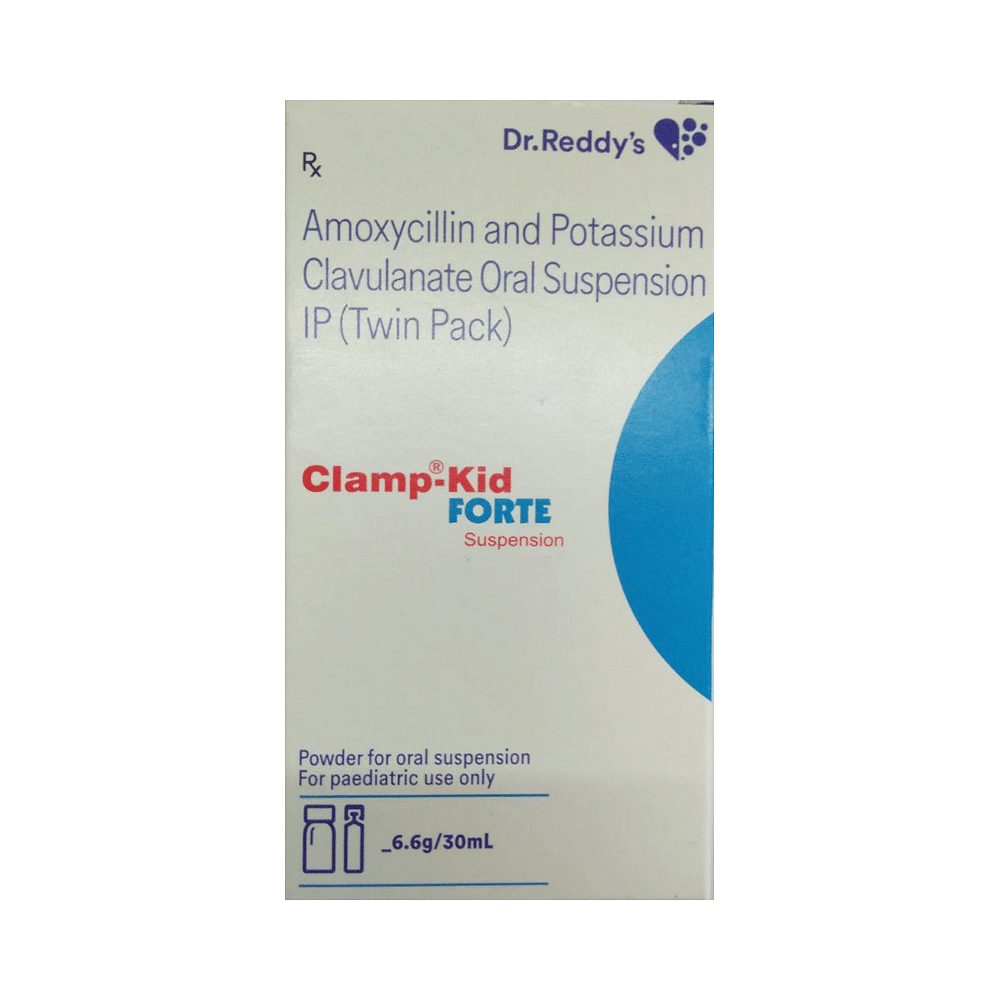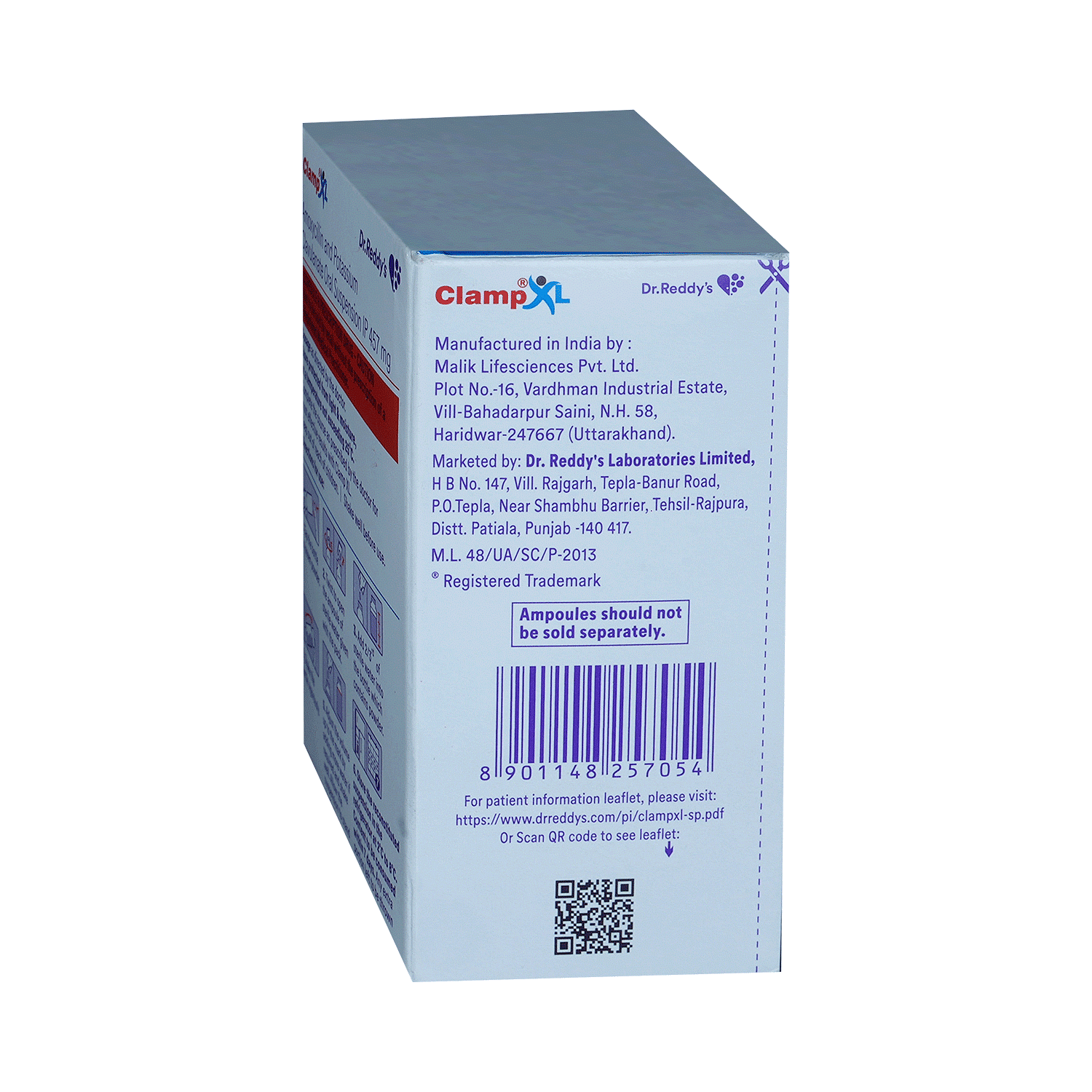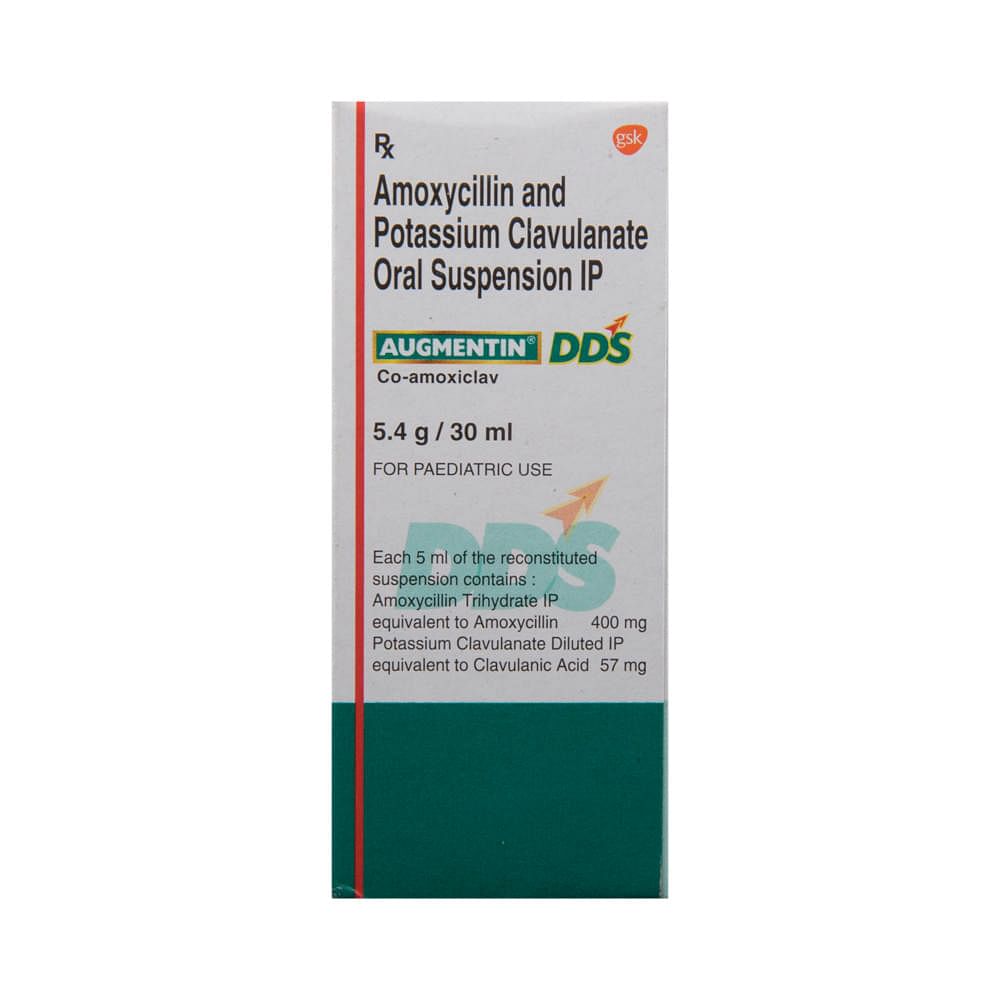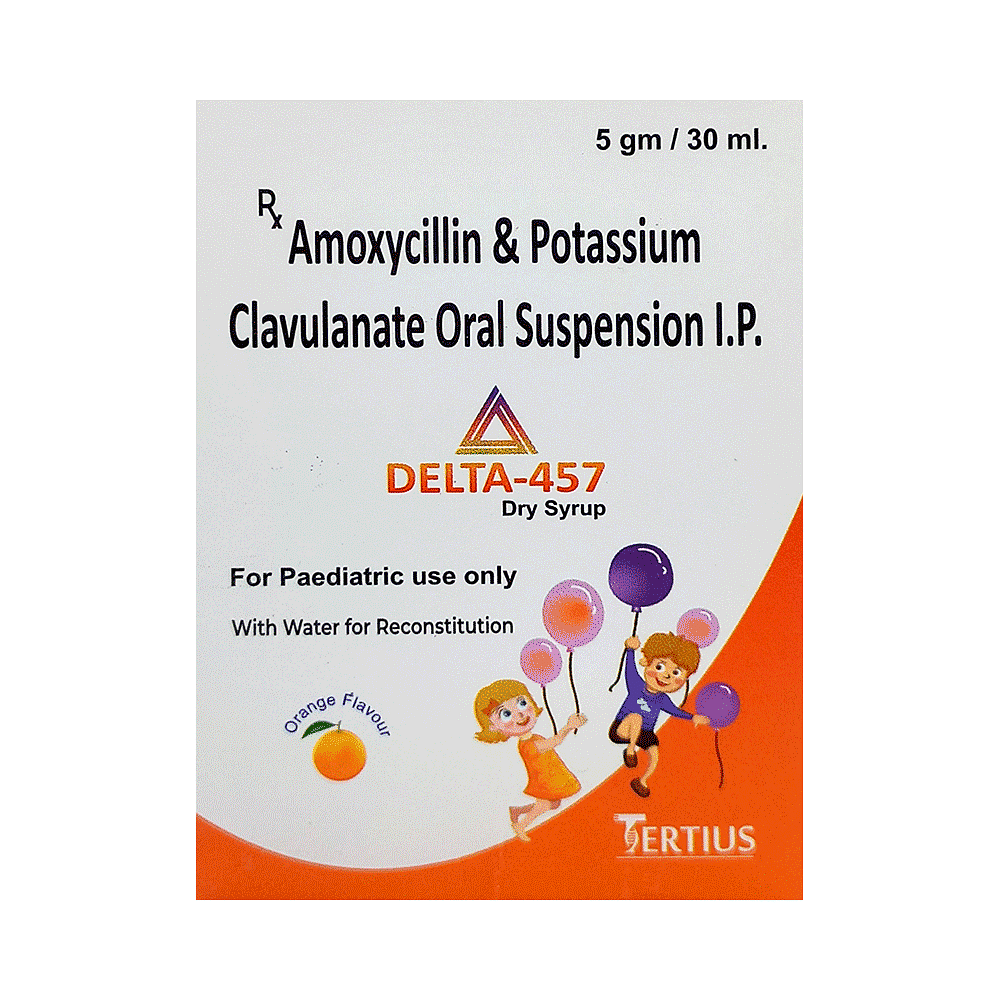
Victomox-CV Forte Dry Syrup
Manufacturer
Santo Formulations
Salt Composition
Amoxycillin (400mg/5ml) + Clavulanic Acid (57mg/5ml)
Key Information
Short Description
Victomox-CV Forte Dry Syrup is an antibiotic medicine that helps treat bacterial infections of the ear, nose, throat, chest, lungs, teeth, skin, and urinary tract.
Dosage Form
Oral Suspension
Introduction
Victomox-CV Forte Dry Syrup is an antibiotic medicine that helps treat bacterial infections of the ear, nose, throat, chest, lungs, teeth, skin, and urinary tract. It is capable of killing bacteria that have become resistant to other therapies and thus also helps treat tuberculosis that is resistant to other treatments.
Directions for Use
Your child must complete the entire course of antibiotics. Stopping too soon may cause the bacteria to multiply again or cause another infection.
How it works
Victomox-CV Forte Dry Syrup is an antibiotic. It has two active agents amoxycillin and clavulanic acid. Amoxycillin works by preventing the formation of the bacterial protective covering (cell wall) essential for the survival of the bacteria. Whereas clavulanic acid serves a special purpose of inhibiting an enzyme (beta-lactamase) that is produced by resistant bacteria. This makes the combination of amoxycillin and clavulanic acid an effective line of treatment for many types of infections.
Quick Tips
Your child must complete the entire course of antibiotics. Stopping too soon may cause the bacteria to multiply again or cause another infection. Encourage your child to drink plenty of water in case diarrhea develops as a side effect. Never give Victomox-CV Forte Dry Syrup until and unless prescribed by the doctor. Do not give Victomox-CV Forte Dry Syrup to treat common cold and flu-like symptoms caused by viruses. Check ‘expiry’ before giving Victomox-CV Forte Dry Syrup to your child. Immediately discard all the expired medicines.
Related Medicines

Clamp Kid Forte Suspension

Clamp Xl Suspension

Augmentin DDS Suspension

Moxikind-CV Forte Dry Syrup

Omexin DS Dry Syrup

Moxymek-CV Plus Dry Syrup

Metclav-Duo DS Dry Syrup

Delta 457 Dry Syrup Orange

Moxinil-CV Duo Dry Syrup

Rescuclav-DS Dry Syrup Strawberry
Frequently asked questions
Can other medicines be given at the same time as Victomox-CV Forte Dry Syrup?
Victomox-CV Forte Dry Syrup may interact with other medications. Tell your child's doctor about all other medications they are taking before starting this medication. It's also important to check with your child's doctor before administering any medicine to your child.
Can I get my child vaccinated while on treatment with Victomox-CV Forte Dry Syrup?
Antibiotics usually do not interfere with the ingredients in vaccines or cause a negative reaction in a child who has just been vaccinated. However, children should avoid getting vaccinated until they have recovered from the illness that prompted the antibiotic treatment. Once your child feels better, they can be vaccinated.
Which lab tests may my child undergo while taking Victomox-CV Forte Dry Syrup on a long-term basis?
Periodically, the doctor might monitor kidney and liver function in children who have been using this medication for a prolonged period.
Can I give a higher than the recommended dose of Victomox-CV Forte Dry Syrup to my child?
Giving a higher dose than the recommended dosage can increase the risks of side effects. If your child experiences increased symptoms, contact their doctor for re-evaluation.
Can I stop giving Victomox-CV Forte Dry Syrup to my child when the symptoms are relieved?
Do not stop giving this medication unless you have completed the full course of treatment. Even if your child feels better, there may be some effects that will continue for a while. Therefore, keep following the doctor's instructions.
Can the use of Victomox-CV Forte Dry Syrup cause diarrhea?
Yes, Victomox-CV Forte Dry Syrup may cause diarrhea. This is because the medication has antibacterial properties that can affect the balance of good bacteria in your child's digestive system.
Do all viral common colds result in secondary bacterial infection?
The majority of viral infections do not lead to secondary bacterial infections. However, antibiotic use should only be considered after consulting with the doctor as it can increase your child's risk of side effects.
The mucus coming out of my child’s nose is yellow-green. Is it a sign of a bacterial infection?
Yellow or green mucus in the nose does not necessarily indicate the need for antibiotics. It is normal for mucus to thicken during a common cold, and it can transition from clear to yellow or green. These symptoms typically last 7-10 days.
Is there any sign which shows that my child needs immediate medical attention?
Seek immediate medical attention if your child experiences severe allergic reactions (difficulty breathing, skin rashes), gastrointestinal infections (diarrhea), or liver damage (weakness, paleness, vomiting). These are rare, but serious side effects and require professional medical care.


